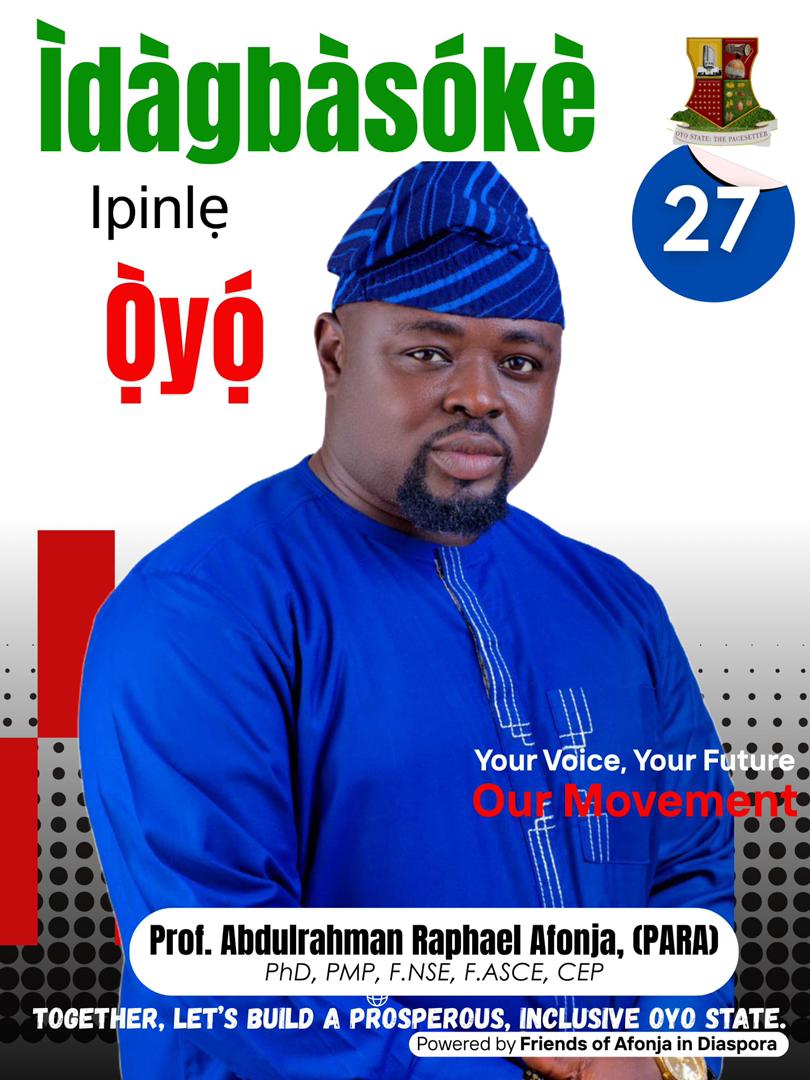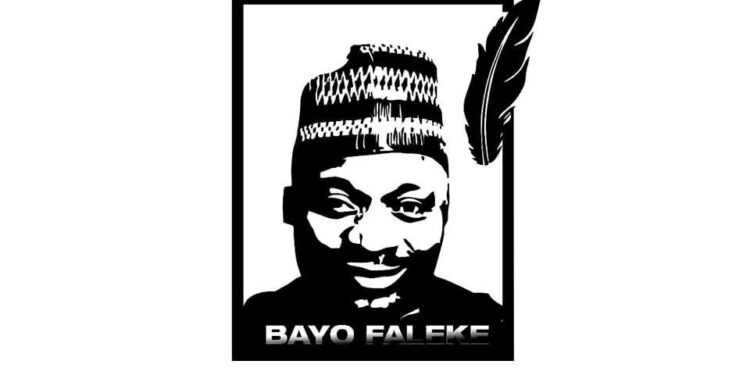Your Excellency,

I bring you warm greetings and commend your administration for the visible strides recorded in infrastructural development across Oyo State. Roads, bus terminals, and strategic capital projects have no doubt enhanced mobility, reshaped our urban landscape, and improved the face of governance in many quarters.
As your second term approaches its twilight, I trust that your attention will tilt more intentionally toward other sectors that continue to cry out for urgent intervention especially infrastructure in our public primary and secondary schools, a revitalized approach to agriculture and food security, a functional and equitable health system, the rehabilitation of inner and link roads across communities, and a sustainable model for waste management in growing urban spaces.

Your Excellency, I write this letter not as a partisan figure, nor as an emotional critic, but as a concerned stakeholder in Project Oyo, a broadcast journalist, public affairs commentator, and a voice for historical balance, institutional dignity, and sustainable policy legacy.


The subject of this letter is the recently announced decision to rename The Polytechnic, Ibadan to Victor Omololu Olunloyo Polytechnic, Ibadan.
Let me first affirm what is broadly accepted and universally true: the late Dr. Victor Omololu Olunloyo was an intellectual icon, a man whose mathematical genius, analytical depth, and statesmanship earned him both national admiration and global respect. His legacy deserves to be enshrined, studied, and celebrated beyond soundbites. He is, without doubt, a name that must be remembered.

However, the pathway chosen in immortalizing him by renaming The Polytechnic, Ibadan raises serious questions about legacy management, institutional identity, stakeholder participation, and the long-term cultural cost of such decisions on policy practice in Oyo State.

The Polytechnic, Ibadan is not just a campus of concrete and curriculum. It is an institution deeply woven into the tapestry of Oyo State’s educational journey. For over 50 years, it has operated not merely as a school but as a brand of excellence, known across Africa and the wider academic world. It has produced engineers, technologists, creatives, and entrepreneurs who today carry the identity of “Poly Ibadan” with pride from Ibadan to Toronto, from Kano to London.
To alter that name without broad-based consultation, engagement with key stakeholders, and deeper public reasoning is to risk not only erasing history but also disrupting institutional continuity and public trust.
Some have risen in defense of the decision, citing examples such as Moshood Abiola Polytechnic, Obafemi Awolowo University, LAUTECH, and Emmanuel Alayande University. But with due respect, citing precedents without evaluating context is not the hallmark of sound policy logic. The fact that something has been done before does not necessarily make it the most appropriate path in every situation.
Globally, the renaming of legacy institutions is a weighty affair, approached with transparency, inclusion, and respect for long-standing heritage. In countries where educational integrity is prized, institutional names are not changed lightly. Names carry not just brand value but academic identity. Harvard, Oxford, MIT, and even African institutions like Makerere and Fourah Bay College have maintained their names because identity matters especially when tied to academic continuity and alumni prestige.
As Africans, we say, “You do not throw away your old drum because you just bought a flute.” Legacy institutions like The Polytechnic, Ibadan, deserve to be protected not for nostalgia, but for continuity, history, and future relevance.
Your Excellency, we are not saying Dr. Olunloyo should not be honoured, indeed, he must be. But honouring one icon should not come at the cost of diminishing an institution that has become a state monument in its own right. There are more visionary and strategic options available: the establishment of a Centre for Mathematical Innovation, a new Institute of Policy and Scientific Thinking, or a state owned vocational center for skill acquisition that could all serve as eternal pillars to his memory.
What history will remember is not only who we honoured, but how we chose to do so.
Leadership is not defined only by the things we build, but by the legacies we protect. A true statesman is not just remembered for his actions, but for his restraint for the times he chose legacy over applause, and for the wisdom to preserve what time has tested.
“When the past is disrespected, the future loses its footing,” says an African maxim.
Your Excellency, I urge you to pause, to listen to the pulse of history, and to reconsider this path. Not because it was ill-intentioned, but because it may not serve the very legacy you seek to preserve.
Thank you for your continued service to Oyo State.
Yours sincerely,
Adebayo Faleke
Broadcast Journalist,Author & Film maker.
Ibadan, Nigeria.


You can get every of our news as soon as they drop on WhatsApp ...To get all news updates, Join our WhatsApp Group (Click Here)
















